Shailendra
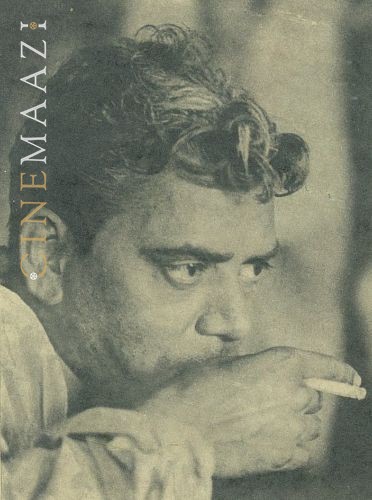
Subscribe to read full article
This section is for paid subscribers only. Our subscription is only $37/- for one full year.
You get unlimited access to all paid section and features on the website with this subscription.
Not ready for a full subscription?
You can access this article for $2 , and have it saved to your account for one year.
- Real Name: Shankar Shailendra Singh
- Born: 30 August 1923 (Rawalpindi, Pakistan)
- Died: 14 December 1966 (Bombay)
- Primary Cinema: Hindi
- Parents: Parvati Devi, Shankardas Kesari Lal Shailendra
- Children: Shaily Shailendra , Amla Mazumdar, Manoj Shankar Shailendra, Dinesh Shailendra, Gopa Shailendra
It was the year 1947 and the place was Bombay. Raj Kapoor, who had already begun the production for his film Aag, was enjoying the show organized by IPTA when a young lad came on stage and started reciting a poem, Jalta Hai Punjab, an agonized expression of the Partition riots. The performance impressed Raj Kapoor so much that he believed that only this boy could write a powerful song for his film. That young lad was Shankar Shailendra Singh, who came to be known as Shailendra to the film industry.
It is amusing that when Raj Kapoor first approached him to hire him as a lyricist, Shailendra refused as he was then not keen on contributing lyrics to films. Raj Kapoor made Aag without him on his team. Later, Shailendra was in dire need of rupees 500 as his wife was expecting their first child. He thought of Raj Kapoor's offer and went to R K Studio to meet him and ask for some money. Raj offered him, again, a position as a lyricist, but Shailendra again refused. Instead, Shailendra chose to take a loan and promised to repay after a few months. When he could not do so, Raj asked him to write two songs which then can be accepted as the repayment of his loan. Then, Raj Kapoor hired him as a lyricist for his next film, Barsaat (1949) at a princely sum of Rs.500. In Barsaat (1949), Shailendra wrote two songs, Barsaat mein, humse mile tum saajan and Patli kamar hai, tirchi nazar hai.
Shailendra was born on 30th August 1923 in Rawalpindi, Pakistan to mother Parvati Devi and father Kesari Lal. Shailendra’s parents had four sons of whom he was the eldest. Shailendra’s father hailed from Bihar, but his job in the army brought him and his family to Rawalpindi. After a few years Shailendra, along with his family, moved to Mathura, where he had a tough childhood. After the death of his father, Shailendra and his family had to struggle to make a living. With help from his friends and school teachers, Shailendra was able to complete his education.
He developed an interest in writing poetry and studied the writings of Harivansh Rai Bachchan, Ratnakar, Pant, and Prasad very closely. His familiarity with Uttar Pradesh’s folk traditions and his love for literature helped him throughout his career. Full of enthusiasm and quite the rebel, Shailendra wanted to contribute to the Independence struggle through his poetry. In 1942, he was assigned some time in jail as well by the British Government for participating in the freedom movement.
After securing a Diploma in Electrical and Mechanical Engineering with welding as his specialization, Shailendra got a job in the Indian Railways as a Grade B Mechanic and moved to Agra for his training. There he met a girl and fell in love. Their love story culminated in marriage after a few objections from the girl’s family.
In 1947, Shailendra got a job as a welding apprentice in the Central Railways in Parel and was transferred to Bombay. While he worked at the Matunga Railway workshop, he started attending mushairas. Around this time, Shailendra became a member of IPTA (Indian People’s Theatre Association) and it was there that he ended up performing and meeting Raj Kapoor.
The film Barsaat (1949) brought Raj Kapoor, the music duo Shankar-Jaikishan and the new lyricist duo Shailendra and Hasrat Jaipuri together, a group that continued to give musical hits for a long period. While Hasrat worked more with Jaikishan, Shailendra worked more with Shankar. In fact, with singer Mukesh in their team, the music department of R K Studios ruled the film industry for decades. After Barsaat, Shailendra wrote lyrics for Awara (1951), Aah (1953), Boot Polish (1954), Shree 420 (1955), Jagte Raho (1956), Ab Dilli Dur Nahi (1957), Jis Desh Mein Ganga Behti Hai (1960) and Sangam (1964). Shailendra also worked with other music composers like S D Burman in Insaan Jaag Utha (1959), Kala Bazaar (1960), Bandini (1963), and Guide (1965), S N Tripathi in Sangeet Samrat Tansen (1962), Salil Chowdhury in Ek Gaon Ki Kahani (1957), Usne Kaha Tha (1960) and Madhumati (1958), C Ramchandra, Roshanlal Nagrath, Anil Biswas, Mukul Roy, Ninu Mazumdar, Sapan Jagmohan, Ravi Shankar Sharma, and Pandit Ravi Shankar in Anuradha (1960). Raj Kapoor would affectionately call him Kaviraj and Pushkin.
Shailendra worked with R D Burman in his first film Chhote Nawab (1961) and recorded the song Ghar aaja sung by Lata Mangeshkar. It was the only film where both worked together. He also worked with Hemant Kumar in Anand Math (1952), Patitaa (1953), Munimji (1955) and others.
In the 1950s, with his career reaching the heights of success, Shailendra wrote some of the best melodies, like Ghar aya mera pardesi, Dam bhar jo udhar muh phere (Awara, 1951), Roun main sagar kinare (Nagina, 1951), Preet ye kaisi bol ri duniya (Daag, 1952), Chhoti si hai zindagani re (Aah, 1953), Aaaja Mere Kismat ke kharidar (Anarakali, 1953), Nanhe munne bachche teri muththi mein kya hai (Boot Polish, 1953), Dharti kahe pukar ke (Do Bigha Zamin, 1953), Hai sabse madhur wo geet jinhe hum (Patita, 1953), Kare badra tu na jana (Shikast, 1953), Rula kar chal diye ek din (Badshah, 1954), Chhota sa ghar hoga badlo ki chhaon mein (Naukri, 1954), Kahan ja raha hai tu ae jaane wale (Seema, 1955), Mera joota hai japaani, Pyar hua ikraar hua hai, and Ramaiya vastavayya, maine dil tujhko diya (Shree 420, 1955), Jahan main jaati hu, Ye raat bheegi bheegi and Manbhawan ke ghar jaaye re gori (Chori Chori, 1956), Aaj ki intezaar mein jaane ko bahar bhi (Halaku, 1956), Nakhrewali…dekhne mein dekh lo (New Delhi, 1956), Munna bada pyaara (Musafir, 1957), Ye raat ye mausam nadi ka kinara (Dilli Ka Thug, 1958), Suhana safar aur ye mausam haseen (Madhumati, 1958), Meri jaan meri jaan (Yahudi, 1958), Sabkuch seekha humne, and Tera jaana dil ke armaano ka lut jaana (Anari, 1959), Mujhko yaaro maaf karna (Main Nashe Mein Hu, 1959), Kaise din beete kaise beeti ratiyan and Jaane kaise sapnon mein kho gayi ankhiyan (Anuradha, 1960), Ajeeb dastaan hai ye and Dil apna aur preet parayi (Dil Apna Aur Preet Parayi, 1960), Mera naam raaju (Jis Desh Mein Ganga Behti Hai, 1960), Khoya khoya chand (Kaala Bazaar, 1960) and Nani teri morni ko mor le gaye (Masoom, 1960).
In the 60s, he showed his versatility by writing songs like Chaahe koi mujhe jangli kahe (Jungli, 1961), Tera mera pyar amar (Asli Naqli, 1962), Bol meri taqdeer mein kya hai (Hariyali Aur Rasta, 1962), O re majhi re, mere saajan hai uss paar (Bandini, 1963), Yaad na jaaye beete dino ki and Ruk ja raat theher ja re chanda (Dil Ek Mandir, 1963), O sanam tere ho gaye hum (Aayi Milan Ki Bela, 1964), Aaj kal mein dhal gaya (Beti Bete, 1964), Aa ja aayi bahar (Raj Kumar, 1964), Mere mann ki ganga and O mere sanam, do jism magar (Sangam, 1964), Kaanto se kheench ke ye aanchal, Wahan kaun hai tera musafir and Tere mere sapne ab (Guide, 1965), Hum kale hai to kya hua dilwale hai (Gumnam, 1965), Laal chhadi maidan khadi (Jaanwar, 1965), Aaj kal tere mere pyar ke charche (Brahmachari, 1968) and Sapnon ka saudagar aaya (Sapnon Ka Saudagar, 1968).
While he was able to complete two songs - More ang lag ja balma and Kaate na kate raina, for the film Mera Naam Joker (1970); he died before he could finish the third song Jeena yahan marna yahan. The song was completed by his son Shaily Shailendra who was only 17 years old at the time. In 1971, two more films were released which had songs written by him - Door Ka Rahi (1971) and Jawan Mohabbat (1971). Interestingly, Shailendra also wrote a duet for Lata Mangeshkar and Kishore Kumar for an unfinished film Suhana Geet (1960), Mera geet adhura hain. Many years later, Kumar recorded the song as a solo, composed and sung by him in the film Mamta Ki Chhaon Mein in 1989.
In the course of his career, Shailendra worked in 169 films for which he wrote approximately 768 songs. Out of these, 124 films had music composed by Shankar Jaikishan, 17 films had music by Salil Chowdhury, 9 were by S D Burman and the rest were composed by Ravi, Hemant Kumar, Dattaram, etc.
Shailendra was one of those writers who had a unique style of writing lyrics from real-life situations and creating meaningful songs with simple words. It is known that even before hearing the story of the film Awara, Shailendra penned the song Awara hun. Once he had an argument with Shankar Jaikishan which he turned into a song – Chhoti si duniya pehchane raste hai, tum kabhi toh miloge kahi toh miloge – that was later used in the film Rangoli (1962). His quarrel with Raj Kapoor also became a song when he wrote Tum bhi ho ham bhi hai, dono hai aamne saamne which was used in Jis Desh Mein Ganga Behti Hai (1960).
Shailendra was also popular for his non-film writing. His unpretentious minimalist poetry reflected the common life and the struggles that one faced. He wrote lyrics with understanding, humor, and sarcasm at the current social and political scene. Born and brought up a man of the people, Shailendra remained the same all his life. His lyrics, like himself, were simple and had depth. He could dash off a frothy love lyric, and he could compose a deeply philosophical poem. He wrote of sadness, gaiety, resignation, despair, and hope.
For just one film, Bimal Roy’s Parakh (1960), the lyricist wrote the dialogues and proved his excellence in this field. He also wrote the lyrics of the very successful Bhojpuri film Ganga Maiya Tohe Piyari Chadhaibo (1962).
Shailendra also tried his hand at producing films when he produced the cult classic Teesri Kasam (1966) directed by Basu Bhattacharya and starring Waheeda Rehman and Raj Kapoor in lead roles. Based on Maare Gaye Gulfam by writer Phanishwar Nath ‘Renu’, Teesri Kasam turned out to be a commercial failure, leaving its producer and lyricist Shailendra with financial problems. His health deteriorated rapidly due to the stress caused by this. Teesri Kasam went on to win the National Award for the Best Feature Film of 1966 and is still considered amongst the finest human documents written on celluloid. Not to forget, Shailendra penned some of the most memorable and beautiful songs for the film, like Pan khaye saiyan humaaro sung by Asha Bhosle, Sajan re jhoot mat bolo, and Sajanwa bairi ho gaye hamar sung by Mukesh, and Chalat Musafir.
Shailendra passed away on 14th December 1966 at the age of 43. He was survived by his wife and five children - three sons and two daughters. After being unwell for about a fortnight, he had been moved to a nursing home for treatment of cirrhosis of the liver, a day previous to his death. Shailendra’s son, Shaily also became a popular lyricist in the 70s and 80s.
Shailendra won the Filmfare Award for Best Lyricist three times - for Ye mera deewanapan hai for Yahudi (1958), Sab kuch seekha humne for Anari (1959) and Main gaaun tum so jaao for Brahmachari (1968). Shailendra also set a record by winning the first Filmfare award for Best Lyricist when this particular category of awards was first instituted for films released in 1957.
In 2016, a street was named after him in Mathura - Geetkar Jankavi Shailendra Marg in the Dhauli Pyau locality.
Shailendra’s words also received global recognition when the song Mera joota hai japani from Shree 420 was featured in the Hollywood superhero-action film Deadpool (2016).
References
- https://upperstall.com/film/teesri-kasam/
- https://www.cinemaazi.com/feature/teesri-kasam-a-forgotten-classic
- Hindi Filmon Ke Geetkar by Anil Bhargav
-
Filmography (3)
SortRole
-
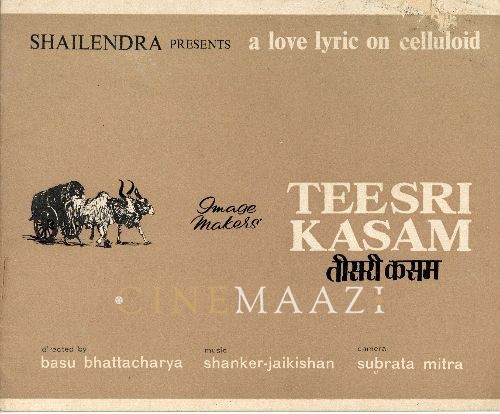
Teesri Kasam 1966
-
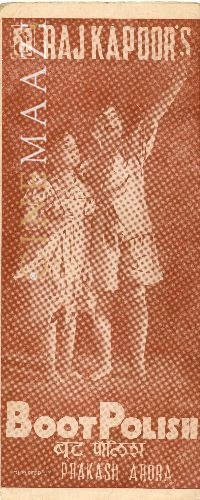
Boot Polish 1954
-
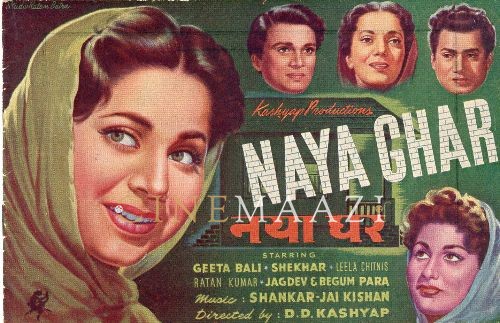
Naya Ghar 1953
-
-
Awards (3)

Filmfare Awards, 1958
Best Lyricist Award: Yahudi (1958)
Filmfare Awards, 1959
Best Lyricist Award: Anari (1959)
Filmfare Awards, 1968
Best Lyricist Award: Brahmachari (1968)



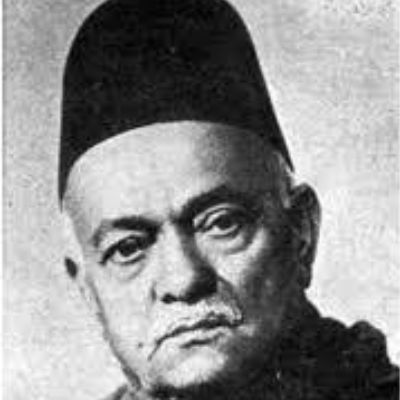
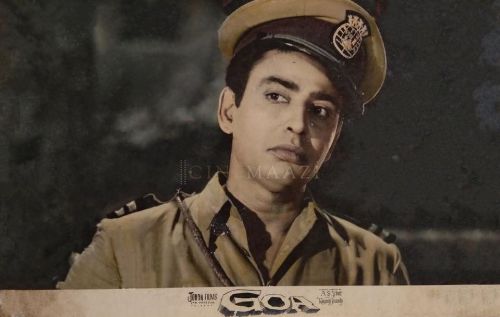
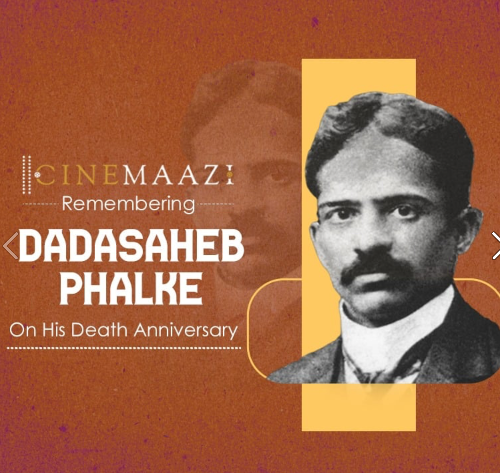

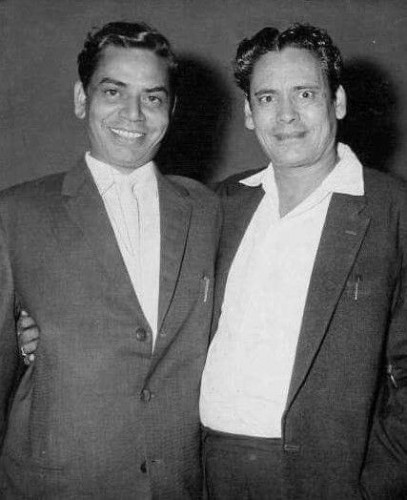

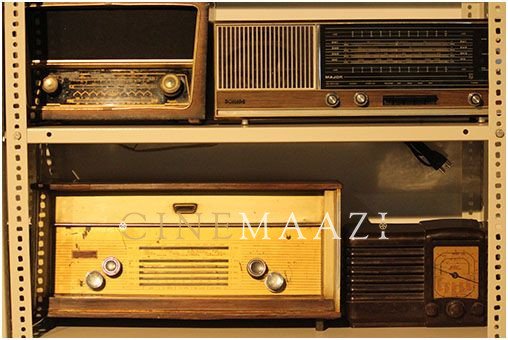
.jpg)



